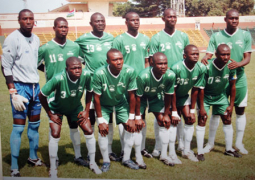The Government of The Gambia, in partnership with Global Water Partnership West Africa and United Nations, on Thursday validated the UN 97 Watercourse Convention for ratification process in the country.
Speaking at the ceremony held at the Paradise Suites Hotel, Amadou Saine, permanent secretary at the Ministry of Fisheries and Water Resources, stated that the 1997 United Nations Convention on the laws of non-national uses of International Watercourses is a flexible and overarching legal framework that establishes basic standards and rules for cooperation between states on the use, management and protection of International Watercourses.
According to him, since its adoption in 1997, water pollution and overuse has worsened in many places and as a result the world’s poorest people are already facing shrinking supplies.
“The scale of the freshwater challenge is enormous, especially with the climate change, making water availability more unpredictable and causing more frequent, widespread droughts and floods,” he said.
He said securing water resources for meeting growing human needs and safeguarding fragile ecosystems and maintaining economic prosperity are among the most pressing issues of the 21st century and beyond.
“The concern certainly needs to be addressed in a holistic and comprehensive manner such as to ensure water security for all,” he pointed out.
According to him, the convention requires watercourse states to cooperate on the equitable and reasonable use and management of international watercourses, with a view to attaining sustainable utilization and adequate protection to achieve meaningful and large-scale conservation and development goals.
For his part, Yusupha Bojang, Integrated Water Resources Management focal point at the department of Water Resources, said in a paper presentation that the government recognizes the need to change strategy and to adopt the Integrated Approach to Water Resources Management in all national development policies.
“The government is committed to creating the enabling environment through elaboration of the 2007 National Water Policy and revising the 1979 Water Act,” he remarked.
He also said the government through the Ministry of Fisheries and Water Resources and the Department of Water Resources, is currently engaged in the necessary Institutional reforms required not only to embrace the IWRM process but also to enhance the implementation of its fundamental mandate within the subsector.
For his part, Dr Henry D.R. Carrol, a legal practitioner, said in his presentation that the parties to the present convention are conscious of the importance of international uses in many regions of the world.
He noted that Article 4 of the convention states that every watercourse state is entitled to participate in the negotiation and to become a party to any watercourse agreement that applies to the entire international watercourses.
Meanwhile, the ratification process of the convention that has been validated yesterday is largely supported by European Union-Afro-Caribbean-Pacific states (EU-ACP), water facility and is being implemented by the United Nations Environment Programme - Centre for water resources (UNEP-UCC) in collaboration with the Danish Hydraulic Institute (DHI).


